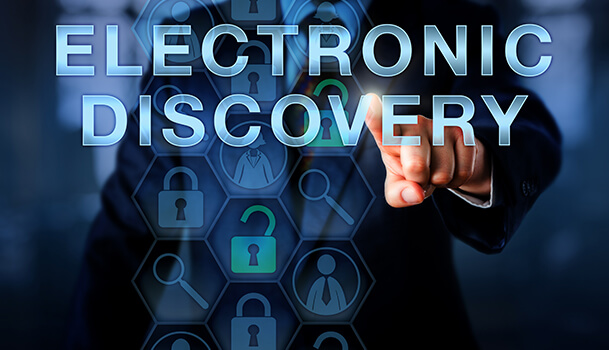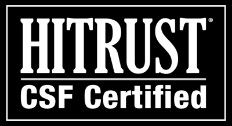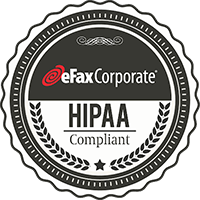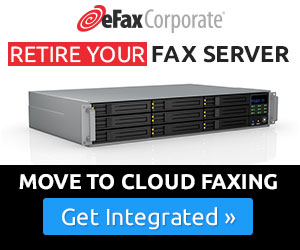Imagine: Your firm has been representing a particular client — a business, for example — for several years, and a legal matter facing that client suddenly triggers an e-Discovery request. Your firm must now produce all responsive (and non-privileged) files, documents and communications relating to that client.
Perhaps your firm has a document review platform, so you’re able to compile all client-related electronic data — stored on in-house servers, associates’ computers, maybe a cloud storage site, etc. — and let your review software scan these files to determine which are responsive to the e-Discovery request. Maybe the request includes all client data generated by your firm within a specified date range, so you’ll instruct the software to locate all files dated within that timeframe. You might also instruct the software to scan all data for certain keywords or phrases — which might indicate a privileged communication — so you can segment those files out of your e-Discovery production.
These are all logical steps to take when your firm is confronted with an e-Discovery request, and leveraging document review software can certainly help your firm save time and money over the alternative process: Manually reviewing every client-related file to determine its responsiveness to the request.
For most types of electronic data — emails, documents, memos, reports, texts, invoices, spreadsheets, calendar files — leveraging a document review platform can help greatly speed the e-Discovery process and lower its overall cost to your firm. But this process works only to the extent that your stored client files are already in an electronic format that makes them easy to review, analyze and then transmit electronically.
And where does that leave your hardcopy faxes?
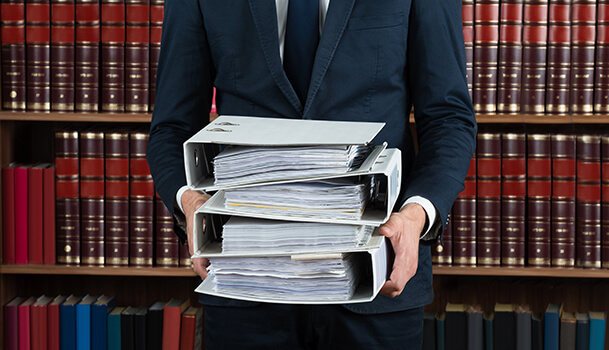
How Legacy Fax Hardware Can Make e-Discovery More Difficult and Expensive
If your firm is like most, even in 2017, many members of your team — from partners to associates to paralegals to front-office staff — still rely on office fax machines for many of your regular communications. Docket sheets. Settlement agreements. Copies of pleadings. Affidavits. For whatever reason, court clerks, government entities, the other law firms you communicate with and even your clients often prefer or even demand to send or receive these and other documents by fax.
Why? Because email is not secure, and regular mail/delivery services are too slow. Also, many people are just used to exchanging certain types of documents by fax and have systems in place to support it.
But if you regularly communicate with clients via hardcopy documents transmitted over a desktop fax machine — and one of those clients becomes the subject of an e-Discovery request that your firm has to respond to — how will you incorporate your stored hardcopy faxes into the e-Discovery data you need to deliver?
As we at eFax Corporate have written, the rules and regulations about e-Discovery for lawyers have become stricter and more demanding in recent years. Here are a couple of important things to understand about your obligation when it comes to e-Discovery under the US Federal Rules of Civil Procedure:
1. Legal professionals are increasingly expected to have full knowledge of the whereabouts of client-related electronic data — and to be able to provide it within a reasonable timeframe.
2. Law firms are increasingly responsible for identifying which information is relevant to an e-Discovery request, whether from an adversary in a litigation matter or from agents leading an investigation. Moreover, ignorance will not serve as a defense.
And in case you’re wondering, faxes — even those that are sent or received as paper documents on a fax machine — still qualify as electronic data in an e-Discovery context, because the fax transmission itself is an electronic form of communication.
All of which is to say that unless you have a mechanism in place to convert your inbound and outbound paper-based faxes to electronic format — whose data and metadata can be easily read and analyzed by a document review platform — you will face a very time-consuming hurdle combing through paper fax files anytime your firm is confronted with an e-Discovery request.
Indeed, even if all employees who use your fax machine regularly file and store those hardcopy documents, and even if your firm is willing to commit to the time-consuming manual process of gathering up all of those hardcopies relevant to an e-Discovery matter, you can still face problems of producing incomplete information despite your good-faith efforts.
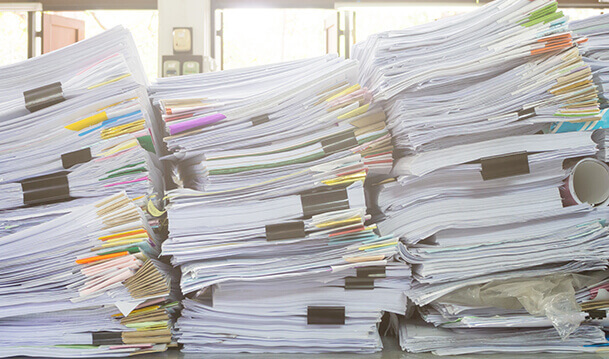
How Stored Fax Hardcopies Can Fail the Audit-Trail Test
There are several ways your stored hardcopies of relevant to a case might fall short of “complete information” in an e-Discovery context. But to cite just one example: In some cases, you’ll be able to show that you transmitted a fax to a specific fax number on a specific date — but not that the fax went through successfully—unless your firm’s employees are in the habit of printing delivery confirmation notices when they send a paper fax — and unless they always file those notices along with the fax document for record-keeping purposes — this carefully compiled e-Discovery content could still be deemed incomplete or insufficient.
This is one reason that storing documents like faxes in hardcopy format is an inefficient — and risky — way of maintaining audit trails for your client-related data.
Your Options for Making Fax Document Review a More Efficient Part of the e-Discovery Process
When it comes to dealing with fax data in an e-Discovery matter, you have three options. Let’s review them, from worst to best.
Option 1: Take Your Chances with Your Legacy Fax Infrastructure
This is the least efficient approach, but many firms stick with it — often due to simple inertia (not taking action is easier) and often because they want to continue deriving value from their old investment in fax machines and fax phone lines.
But with this approach — storing all hardcopy faxes in a file cabinet and then scrambling to manually review, analyze and then digitize them all when the e-Discovery request comes in — your firm will be creating a significant expense, not to mention a potential office-wide epidemic of panic attacks.
And remember: The most recent federal regulations place the burden on legal professionals to be able to provide e-Discovery data in a timely manner. If your firm waits until you receive the request to gather up all hardcopy faxes so you can either review them manually or convert them, one by one, to electronic files, you risk responding late and possibly creating regulatory trouble for your firm.
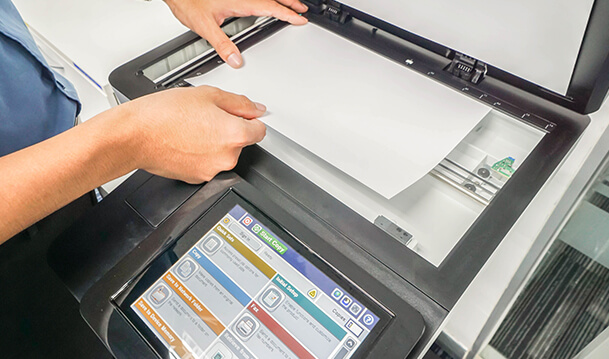
Option 2: Build Paper-to-Electronic Conversion into Your Process After Every Fax
With this approach, you would implement a new policy that each time a firm employee sends or receives a paper fax document, they must — in addition to securely filing the hardcopy — also scan, PDF and save a digital copy of the fax, making sure to include the fax’s cover sheet and to capture all of its metadata.
Implementing this new policy — assuming every member of your firm adheres to it every time they send or receive a communication — will mean that all client-related faxes, just like other types of electronic files, are readily available to be scanned and vetted to determine if they’re responsive to an e-Discovery request. In that sense, this approach is probably better than option 1.
But your firm will also pay an ongoing price for this process. The problem, of course, is that it will it mean making communicating by fax — already one of the slowest and most error-prone forms of communication your firm uses — an even more time-consuming process. The physical act of walking to the scanner, scanning the fax, walking back to the desk and accessing the scanned file, renaming it with the client ID and matter, and saving to the correct folder, is time consuming, adding several administrative steps to every inbound and outbound fax that crosses your firm’s fax machines. And that will mean your firm’s fax infrastructure becomes more expensive — while your team becomes less productive.
Some firms with very high-volume fax requirements have implemented premise-based Fax Server systems in which faxes are sent and received in electronic format. However, these systems are expensive to deploy and purchasing an optional fax archival license is an extra cost.
Moreover, faxes are stored on the fax server as image files, one file per fax page, and when a fax server’s hard drive reaches capacity, standard procedure is for an administrator to “purge” the contents —which often means printing out the fax records for scanning and filing. Again it’s back to the problem of paper records from traditional fax systems.
Option 3: Migrate Your Firm’s Faxing to a Cloud-Fax Solution — Which Automatically Saves Every Fax in Electronic Format Ready for e-Discovery
Finally, the approach we believe is the best is to upgrade your firm’s faxing infrastructure —not to newer in-house fax hardware, but instead to a fully hosted, cloud-based fax service that will . This approach gets your firm’s IT staff out of the business of managing old fax technology and allows them to focus on supporting the firm’s core mission requirements.
With such a service — like the one from industry leader eFax Corporate, the cloud fax solution trusted by more than 40% of the ALM top law firms — your employees will be able to securely send and receive faxes by email (or from an intuitive website), directly from their desktops, laptops and mobile devices, or if they prefer, from multifunction printers.
Your IT team will no longer need to maintain aging fax machines and pay for dedicated fax telephone lines, or to continually reorder ink, toner and paper just for faxing. Plus, your office won’t need to keep those big filing cabinets where (you hope) you’re storing all hardcopies of client-related inbound and outbound faxes dating back to your firm’s inception.
With our online fax service that helps your business comply with the e-Discovery process, every fax your firm sends and receives is automatically saved in a standard electronic format (PDF or TIFF), along with all of its meta-data such as client ID and Matter, and is securely stored in the cloud where your team can easily access it anytime — such as when an e-Discovery request comes in, with a complete audit trail for each document. In addition, cloud based fax storage capacity is unlimited and redundancy is built in to the product.
Let us provide your law firm a free custom quote for eFax Corporate cloud fax service.
